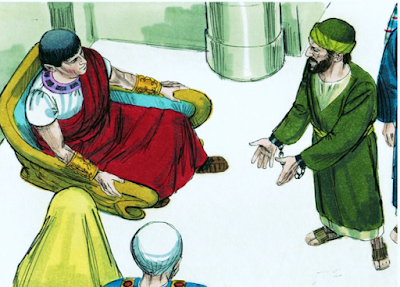I was settling in for the night when it was
impressed upon my spirit to reach for my Bible and open it to the Psalms. The
Psalms, like the Book of Job have gotten me through past tough patches – my Bible
fell open to Psalm 118; a very good
reminder to TRUST IN ADONAI YESHUA. For His mercies endure forever.
And I heard in the cafeteria earlier this evening
that the demoncrats/libtards/socialists/communists/muslims/athiests/satanists/witches/other
subterranean plebs are determined to take President Trump down now that they
have the House in their pocket. Of course that is CNNs reporting with plenty of
their pet biased senators, brainwashed political counselors, and just plain
snarky Trump-hater-gossip-monger pals (which the TV is constantly broadcasting
day and night here at OHSU) so I pretty much just let the {news; aka twisted
gossip passing for news/fake news} go
in 1 ear and out the other while I eat.
This passage in the Old Covenant Scriptures pretty
much covers everything brought to us or that concerns us … from August forward (the
verses that really spoke to me and our situation tonight are dark tinted:
Psalm 118 – “O give thanks unto Adonai; for
He is good: because His mercy endures forever.
2 Let Israel now say, that His mercy endures forever.
3 Let the house
of Aaron now say, that His mercy endures forever.
4 Let them
now that fear Adonai say, that His mercy endures forever.
5 I called
upon Adonai in distress: Adonai answered me, and set me in a large place.
6 Adonai is
on my side; I will not fear: what can man do unto me?
7 Adonai takes
my part with them that help me: therefore shall I see my desire upon them that
hate me.
8 It is
better to trust in Adonai than to put confidence in man.
9 It is
better to trust in Adonai than to put confidence in princes.
10 All nations
compassed me about: but in the name of Adonai will I destroy them.
11 They
compassed me about; yea, they compassed me about: but in the name of Adonai I
will destroy them.
12 They
compassed me about like bees: they are quenched as the fire of thorns: for in
the name of Adonai I will destroy them.
13 Thou hast
thrust sore at me that I might fall: but Adonai helped me.
14 Adonai is
my strength and song, and is become my salvation.
15 The voice
of rejoicing and salvation is in the tabernacles of the righteous: the right
hand of Adonai does valiantly.
16 The right
hand of Elohim is exalted: the right hand of Elohim does valiantly.
17 I shall
not die, but live, and declare the works of the Lord.
18 Elohim hath
chastened me sore: but he hath not given me over unto death.
19 Open to
me the gates of righteousness: I will go into them, and I will praise Elohei:
20 This gate
of the Lord, into which the righteous shall enter.
21 I will
praise thee: for thou hast heard me, and art become my salvation.
22 The stone
which the builders refused is become the head stone of the corner.
23 This is Elohim’s
doing; it is marvelous in our eyes.
24 This is
the day which Adonai hath made; we will rejoice and be glad in it.
25 Save now,
I beseech thee, O Lord: O Yeshua, I
beseech thee, send now prosperity.
26 Blessed
be He that cometh in the name of the Lord: we have
blessed You out of the house of Elohim.
27 God is the Lord, which hath
shewed us light: bind the sacrifice with cords, even unto the horns of the
altar.
28 Thou art
my God, and I will praise Thee: thou art my God, I will exalt Thee.
29 O give
thanks unto Adonai Yeshua; for He is good: for His mercy endures forever.”
The promises and
encouragements in Scripture will do more to help me sleep tonight than a cup of
hot cocoa ;-)






